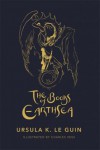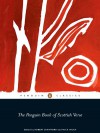Arbie's Unoriginally Titled Book Blog
It's a blog! Mainly of book reviews.
Currently reading
The Tenant of Wildfell Hall, Anne Bronte

If you surveyed a bunch of random strangers, asking them to name the first Bronte Sisters novel that came into their heads, I'm betting that Jane Eyre and Wuthering Heights would total to the vast majority of the answers. After reading this book I have to ask why Anne isn't getting an equal share of the love? Because I found this book to be hugely superior to Jane Eyre.
Despite Jane Eyre dealing with such themes as child neglect and abuse it still struck me as essentially a poor but educated woman's wish-fulfillment fantasy and poorly paced, also lacking the wit that Austen would have brought to the material. The Tenant of Wildfell Hall seems to almost reverse this; plot-wise it can be seen as a conventional romance but that seems to be just an excuse for the close examination of the plight of a woman who is unable to escape a terrible situation without risking her reputation, mainly because her society puts far too much stock in reputations in the first place and additionally a detailed account of the effects of alcoholism not only on the addict but the addict's family and friends. There is no attempt at satire; this book is very serious social commentary of a kind that Hardy would later pick up and more effective at engaging my sympathies than Jane Eyre's travails were.
It's not quite perfect, in my view. There's a problem with the general construction of the novel, where we reach a crisis and then have to go back to the start of a separate narrative and read through all of that before the suspense is relieved - but it's so long that in fact the suspense has failed by the time we get back to it's resolution - and I find it a bit unrealistic that in the middle of an emotionally tumultuous confrontation some-one would just stop and say, "Read this diary if you want to know the truth." That said, the book is never dull - where-as reading Jane Eyre I oscillated wildly from tedium to excitement.
So I don't understand why this book isn't better known. Maybe the suffering is just too much for a lot of readers? Is it insufficiently escapist?











 8
8
 8
8